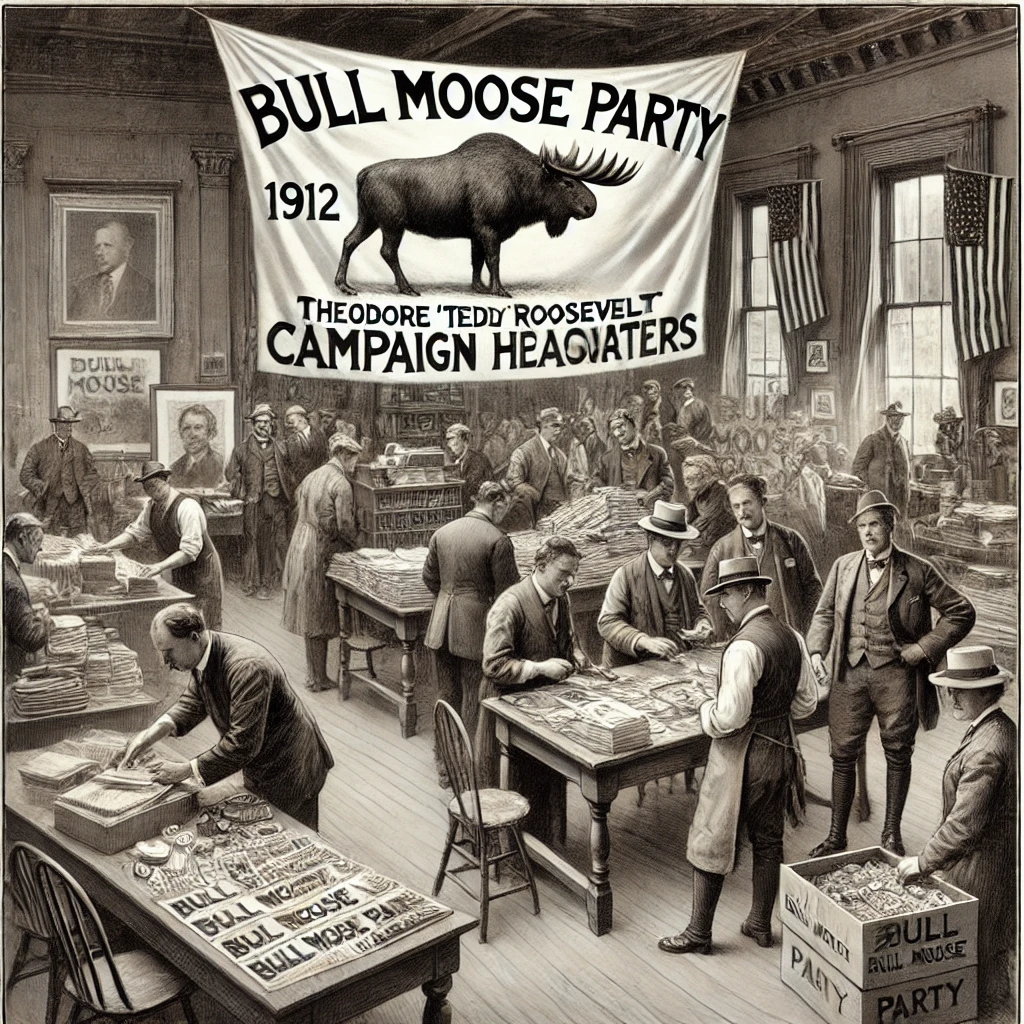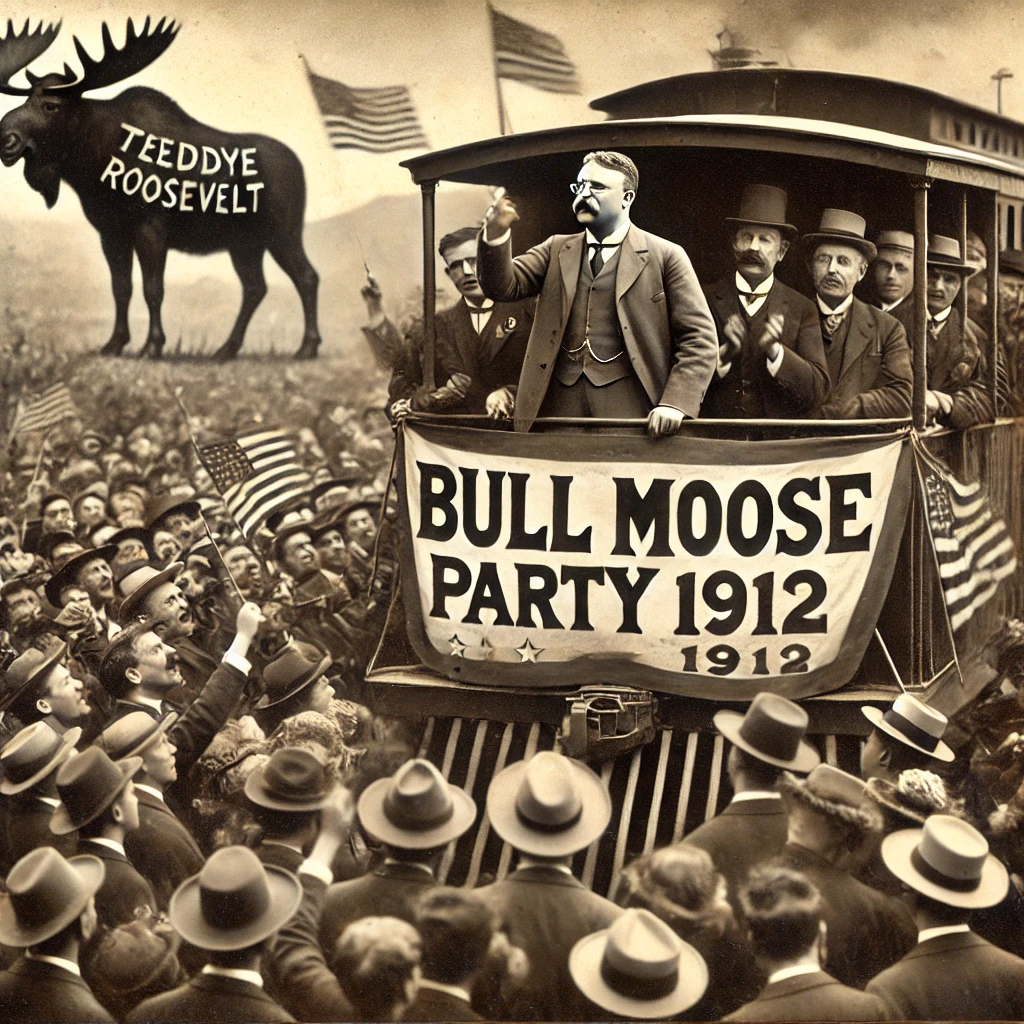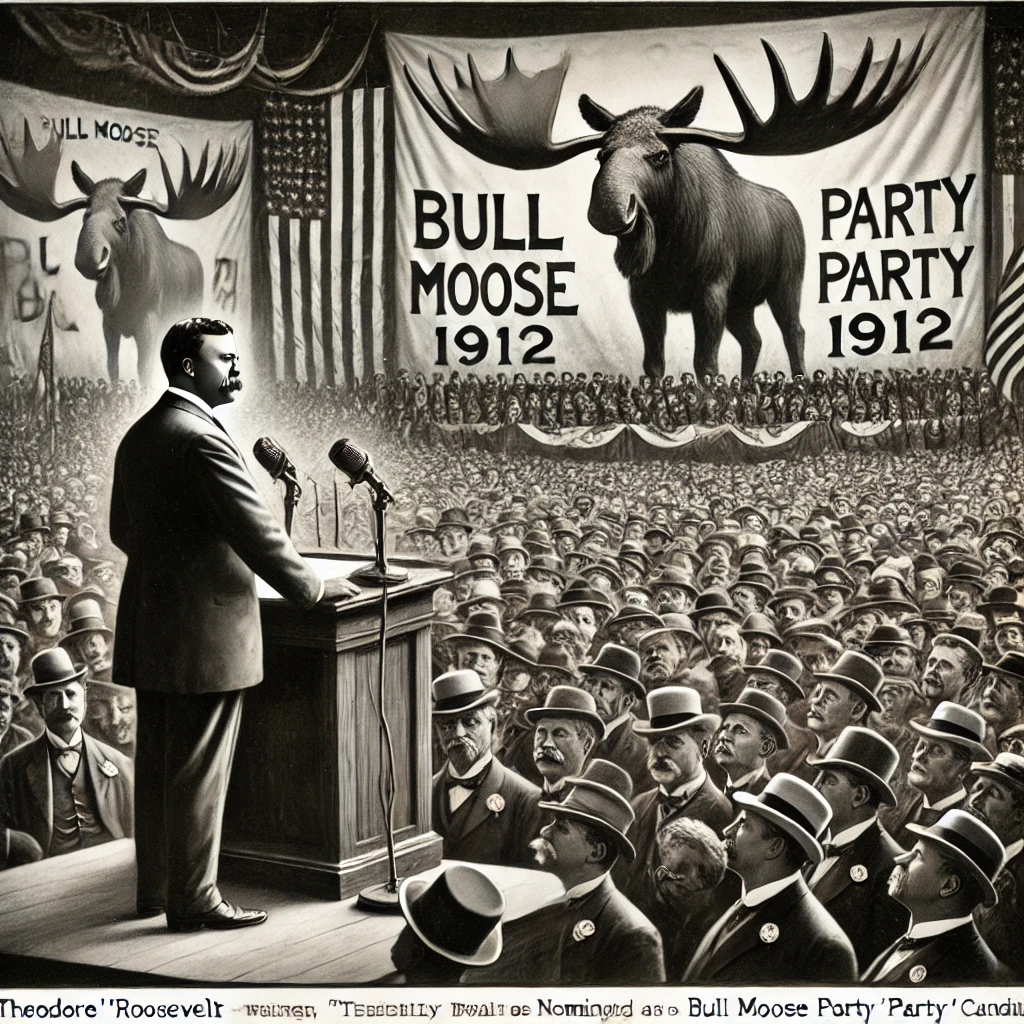On August 7, 1912, Theodore Roosevelt was nominated as the presidential candidate of the Progressive Party, commonly known as the Bull Moose Party. This nomination came after Roosevelt’s departure from the Republican Party, which he had led as President from 1901 to 1909. The split occurred due to disagreements with his successor, William Howard Taft, over policy directions and party leadership.
Roosevelt’s decision to run as a third-party candidate was driven by his belief that the Republican Party had abandoned his progressive reforms and principles. The Progressive Party, founded by Roosevelt and his supporters, aimed to address issues such as corporate monopolies, political corruption, and social justice. The party symbolically adopted the Bull Moose as its emblem, reflecting Roosevelt’s robust and vigorous approach to politics and reform.

The Campaign and Platform
The 1912 presidential campaign was one of the most contentious and dynamic in American history. Theodore Roosevelt’s candidacy as the Bull Moose Party’s nominee introduced a third-party challenge to the traditional two-party system dominated by the Democrats and Republicans. Roosevelt’s platform, known as the “New Nationalism,” called for significant reforms, including the regulation of big businesses, the establishment of social welfare programs, and direct democracy measures.
Roosevelt’s vigorous campaign, marked by energetic speeches and a bold political agenda, drew considerable attention and support from various segments of the population. His progressive vision resonated with voters who were disillusioned with the existing political establishment and sought substantial changes in governance and policy.

The Legacy and Impact of the Bull Moose Campaign
Although Theodore Roosevelt did not win the 1912 election, his candidacy and the Bull Moose Party had a profound impact on American politics. The election resulted in a split in the Republican vote, which contributed to the victory of Democratic candidate Woodrow Wilson. Despite this, Roosevelt’s campaign brought significant attention to progressive issues and influenced subsequent political discourse and policy.
The Bull Moose Party’s focus on reform and social justice laid the groundwork for future political movements and policy changes. Roosevelt’s progressive agenda helped to shape the conversation about government responsibility and social reform in the early 20th century. His efforts highlighted the potential for third-party movements to challenge the status quo and bring new ideas to the forefront of national politics.

The nomination of Theodore Roosevelt as the Bull Moose candidate on August 7, 1912, represents a pivotal moment in American political history. Roosevelt’s decision to run as a third-party candidate and his subsequent campaign for the presidency underscored his commitment to progressive reform and his belief in the need for change. The legacy of the Bull Moose Party continues to be remembered for its influence on American politics and its role in advancing the discussion on social and economic issues. Roosevelt’s bold leadership and progressive vision remain a significant part of the political landscape, illustrating the impact of third-party movements on shaping the course of American history.
